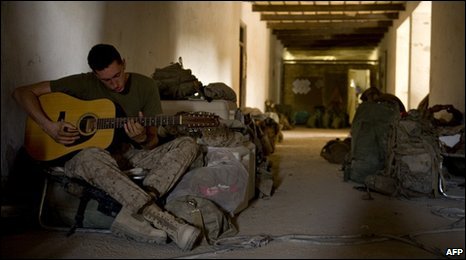sob
Mod
- Joined
- May 4, 2009
- Messages
- 6,425
- Likes
- 3,805
Additional Nato Troops to Afganistan
U.S. allies must send more troops to Afghanistan: NATO
U.S. allies must send more troops to Afghanistan: NATO
Allies of the United States must follow its lead and boost their troop levels in Afghanistan, NATO Secretary-General Anders Fogh Rasmussen said on Thursday.
President Barack Obama is expected to announce on Tuesday that he will send an additional 30,000 troops to help stabilize Afghanistan, where violence has surged to its deadliest levels since the Taliban were ousted in 2001.
The New York Times reported on Thursday that Obama was also seeking about 10,000 additional troops from NATO allies, but was unlikely to get more than half that number.
Speaking at a news conference in Berlin after talks with German Chancellor Angela Merkel, Rasmussen said he was contacting members of NATO and pressing them to support Washington with more soldiers.
"It is premature to make any final decision as far as the concrete number of troops is concerned, but I can confirm that I am right now traveling and contacting a number of allies with the aim to urge them to increase their contributions to our mission in Afghanistan," Rasmussen said.
"I think it's of utmost importance that an American announcement of an increased troop number in Afghanistan is followed by additional troop contributions from other allies," he added.
Germany has the third biggest troop contingent in Afghanistan after the United States and Britain, with about 4,250 soldiers in the country.
But the conflict has become increasingly unpopular in Germany and Merkel has pushed back a decision on increasing Berlin's contribution until after a conference in January, which is expected to set targets for transferring security tasks to Afghan authorities.
"In Germany we will decide after the Afghanistan conference whether and which additional activities we will take on, particularly in the area of training," Merkel said.
The White House said on Wednesday that U.S. troops would be out of Afghanistan by 2017, but Rasmussen said he did not believe in speaking about exit dates.
"We will stay in Afghanistan as long as it takes to finish the job. Obviously that is not forever," he said.



